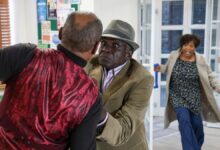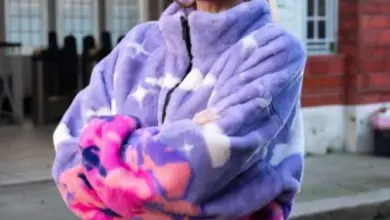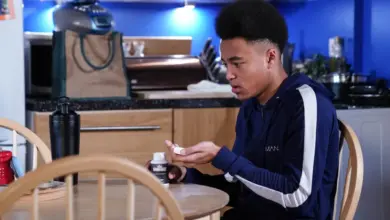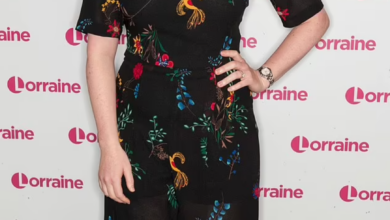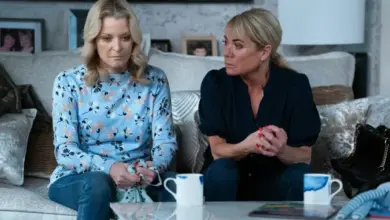Update Shocking: My adoption story doesn’t feature murder but I relate to EastEnders’ George Knight

DNA results, deception, and a murder trial.
This year’s most gripping EastEnders storyline follows George Knight’s (Colin Salmon) discoveries about his heritage and how he was adopted.
My own tale may not be as dramatic, but George’s experience has really struck a chord.
I, too, am a mixed-race, inter-country adoptee – and like George, this has also left me with questions about my identity.
I am now 33 years old and live in the UK but I was born in Dallas, Texas, in 1990. I was adopted a year later by Jenny and John, who are English.
My ethnicity (mixed Black and white) was never an issue for my adoptive parents, and I grew up in a loving and supportive household.
When Jenny and John flew me back from the USA to England, they made it a habit to talk to me from a very young age about where I had come from. They also created a beautiful scrapbook of cartoons and photos explaining my journey.
Plus, I had access to my adoption file. There were no traumatising moments or confrontations like George Knight has gone through with his adoptive parents Gloria (Elizabeth Counsell) and Eddie (Christopher Fairbank).
Yet I, too, started to become curious about my heritage, ethnicity and birth family.
This first happened when I was a teenager. Although I felt settled, I had a desire to look into the eyes of relatives that looked a little like me. Perhaps they had curly hair, or a slightly dark skin tone, such as mine.
Then in 2017, when I was 26, I came across a DNA test that provided an ethnicity estimate and it turned out I was 54% European and 44% African.
It made me feel complete to get a gist of which parts of the world my ethnicity hailed from. This answered a core question for me.
Otherwise, life carried on and I didn’t look into it further.
The subject of my birth family didn’t come again until a year later. I was in Berlin with my wife for New Year’s Eve and received a message from a man called Spencer, based in Virginia, USA, via the DNA test portal.
After lots of back and forth, it transpired that we were distant cousins. I explained my story, and Spencer helped me track down my paternal biological relatives, as well as my biological mother (my birth parents had been apart since the early 90s).
It was all very emotionally overwhelming. I grew up as an only child – but suddenly I found out that I had a half-brother and two half-sisters (sharing the same mother).
As an adopted person, the topic of finding and meeting birth family is often deeply private, and fraught with guilt and uncertainty.
I wrestled with questions such as ‘am I betraying my adoptive parents?’ and ‘will I find out something shocking that I would rather not know?’
But talking to my half-siblings over video call was amazing, as was seeing our shared physical resemblance, from our similar skin tones to the curliness of our hair and the shape of our faces.

